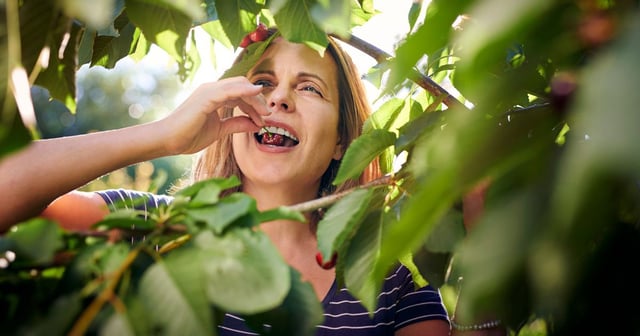Overview
- University of Kent researchers turned damaged or discoloured cherries into a pulp powder that retained anthocyanins and quercetin.
- The powder showed greater biological activity than cherry juice and protected against amyloid-β–related harm in laboratory tests.
- The study was published in Antioxidants and conducted in partnership with RentACherryTree in East Sussex.
- Funding from InnovateUK and Growing Kent & Medway supported a process presented as a scalable way to reduce food waste.
- The team plans further research and notes that potential dementia benefits in people remain unproven despite supportive evidence around flavonoid-rich diets.
